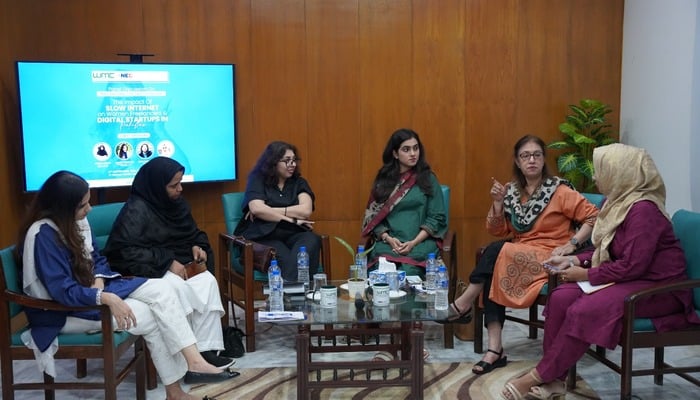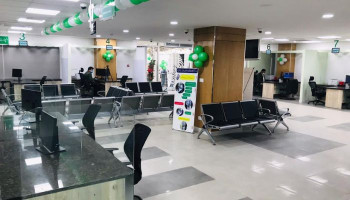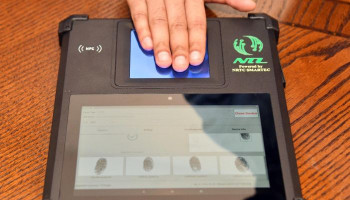
Once a symbol of limitless possibilities in Pakistan, the internet has now become a source of frustration and despair owing to the prolonged internet outage consistently plaguing the country for over a month.
A panel discussion held at the Women Media Centre (WMC) on Friday highlighted problems women freelancers and startups have been facing due to slow internet.
The internet disruption began in August and is being attributed to the implementation of a firewall by the Pakistan Telecommunication Authority (PTA) to keep a check on the flow of information on the internet.
While the purported firewall aims to filter and monitor online content, it results in slower internet speeds. PTA has been trying to sort out the issue, but the predicament seems to remain unchanged.
Growing concern
The panel discussion emphasised that people should be aware of their fundamental rights, which would help them come up with solutions to their problems.
"Improved infrastructure, protection of our online data, educating ourselves regarding digital rights, and support for each other by way of policies and initiatives are ways to empower women in the digital world," Muniza Kakar, a lawyer and human rights activist, noted.
"A strong digital foundation is the key to unlocking opportunities for women freelancers and startups. Digital literacy is the first step towards digital empowerment. We need policies that support women in tech, not hinder them,” she added.
The discussion also identified that collective efforts and advocacy were needed to fill in the digital void that has long hindered women's progress in freelance space and technology-oriented entrepreneurship.
Way out of digital woes
The government and IT ministry have been urged to immediately undertake appropriate measures to resolve the issue. The PTA is also said to have recently had discussions with Internet Service Providers (ISPs) to figure out a solution, but the problem remains unresolved.
"My four-year freelancing journey has been derailed in just a month due to the internet disruption," remarked Hina, a content writer. "It's like being stuck in a never-ending loop of buffering. Online international platforms are now specifying that Pakistanis are not allowed to apply for job posts due to our country's ongoing internet disruption."
This discontinuation of access to the internet has thus caused much damage, not just to the women freelancers or digital startups alone, but to the country’s economy as well.
This is compounded by the fact that frequent upgrades and damage to submarine cables pose grave concerns about the competence of Pakistani companies and freelancers globally.
"The aftermath will drive people to shift their work to countries with stable internet connections, ultimately affecting Pakistan's market," warned Zoha, a journalist, when asked about the long-term impact, adding that freelancers may be losing business to counterparts in other countries, which is a worrying trend.
Pakistan Freelancers Association (PAFLA) Marketing Lead Anmol Prithyani shared a possible solution that their organisation discussed with PTA in a recent meeting. "We've approached the Pakistan Telecommunication Authority to discuss solutions. They've asked us to register freelancers' internet protocol (IP) addresses so they can work without interruptions."
“However, no actual deadline has been given by the government on when this issue will be resolved,” Anmol added.
Moreover, a thought-provoking video package, directed by journalist Faisal Rehman, was screened during the panel discussion, which examined the multifaceted effects of the internet crisis on Pakistan's freelancing community. The video revealed that the crisis has had a profound impact on freelancers' financial stability and mental health, underscoring the need for urgent action to address the issue.
The internet disruption resulted in a wider digital divide, which cannot be ignored when it comes to ensuring equal opportunities for all. The panel discussion at the WMC aimed at raising awareness and uniting people to take a stand for the challenges female freelancers and entrepreneurs are encountering.
















